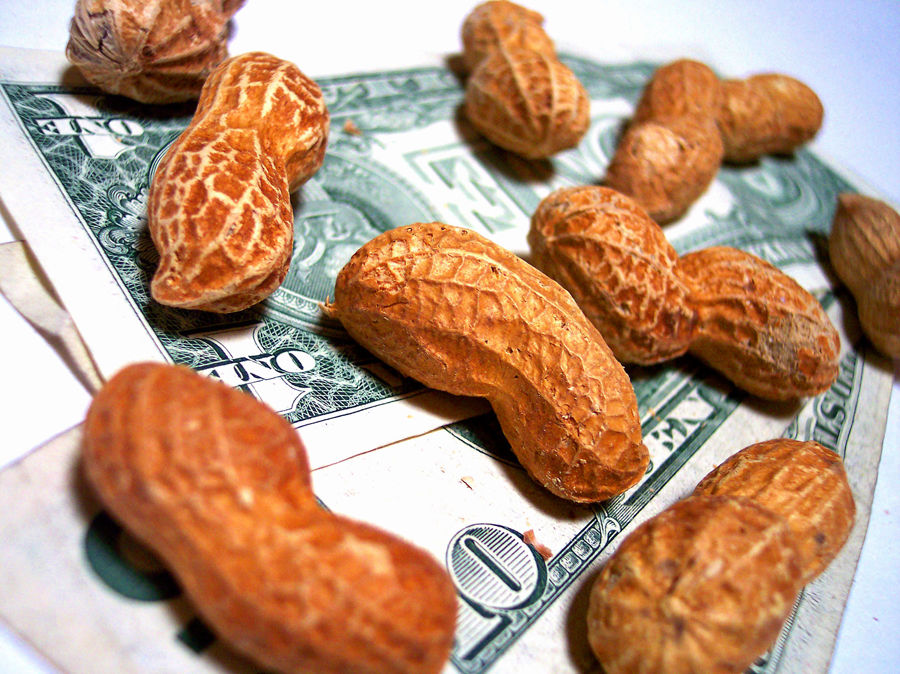LIHUE — William Ka‘auwai of Wailua was recently juggling three jobs to make ends meet, but the work was taking a toll on him both mentally and physically. “I don’t think people are going to live too long if they
LIHUE — William Ka‘auwai of Wailua was recently juggling three jobs to make ends meet, but the work was taking a toll on him both mentally and physically.
“I don’t think people are going to live too long if they gotta work two, sometimes three jobs,” said the 51-year-old airport security officer. “They no more time for family, they no more time for have fun.”
Ka‘auwai had enough of the 70-hour work week, so he quit his two cleaning jobs at the airport several months back and decided to make some sacrifices.
“I was getting burnt out, so I told myself, ‘Even if I gotta streamline,’ I had to cut out a lot of stuff,” he said. “I had to go on the bare minimum just to make it without working two jobs. I get hard time to save nowadays because the bills are unbelievable.”
Ka‘auwai lives above the poverty line, but others aren’t so lucky.
Data released by the U.S. Census Bureau Tuesday indicates that 16.8 percent of Hawaii residents are living in poverty, which accounts for one out of every six residents in the state.
That means the Aloha State has the nation’s ninth-highest poverty rate when cost of living is taken into account.
For Kauai County, that amounts to 11.7 percent of the population — about 7,800 — who are below the poverty level, according to the U.S. Census.
If a family’s total income is less than the family’s living expenses, then that family and every individual in it is considered in poverty, according the U.S. Census Bureau.
Hawaii’s supplemental poverty measure is more than its official poverty rate of 10.9 percent recorded last year. That gap, the nation’s largest between official and supplementary measures, marked a difference of 80,000 people.
“Living in poverty means having some kind of fixed income — whether it be some kind of social security benefits, welfare benefits, not being able to work and not being able to find housing,” said Stephanie Fernandes, Kauai Economic Opportunity, Inc. housing director. “We do have some of our homeless who are employed, but not making enough money to afford their expenses even if they aren’t paying rent.”
Under the official poverty rate, about 149,000 Hawaii residents are considered to be living in poverty. About 229,000 fall below the poverty line when using the supplementary poverty rate.
“We are the clearest story in the nation of how the official poverty rate doesn’t provide a full picture,” said Nicole Woo, senior policy analyst at the Hawaii Appleseed Center for Law and Economic Justice. The supplemental measure “is a reflection of the costs in Hawaii.”
For the state of Hawaii, the poverty guideline for a one-person family is about $13,670 and $27,950 for a family of four, according to 2016 Federal data from the Department of Health and Human Services.
“That’s pretty low,” Fernandes, said. “That compared to the cost of living, our food, transportation cost, rent, and people are expected to survive, it’s really tough.”
The poverty guideline or federal poverty level determines the financial eligibility for certain federal programs.
“To survive people have to be able to work maybe two jobs in order to pay their monthly expenses, which could include the rental market that is out there,” Fernandes said. “We know that Hawaii has a higher cost of living and that affects all spectrums of our population. When you have people who are unable to find employment or disabled and living on fixed income. That seems to affect that population a lot more.”
The poverty wage for a single adult for Kauai county is $6 an hour, while a living wage is $12.54 an hour, according to data from the Massachusetts Institute of Technology.
The living wage is the hourly rate an individual must earn to support a family, if they are the sole provider and are working full-time, which is 2,080 hours per year.
For Ka‘auwai, who said makes about $33,000 a year, paying his monthly living expenses of about $800 on one job required him to make some lifestyle changes.
“My phone bill was cut down. I only have basic cable now. I cut my food ratio down. I used to go out and drink. I don’t do that anymore,” he said. “My gas bill goes down because I don’t travel as far anymore. I cut down on going out and about.”
It would be different, Ka‘auwai said, if he was younger and had to support a family.
“I pity the people who have two, three kids coming up,” he said. “They’re working 2-3 jobs. They’re killing themselves.”
Now that he’s older, with his son grown up and out of the house, the airport security guard said new families need to be cognizant of their financial needs in order to avoid falling below the poverty line.
“Family is expensive. You need to think ahead of food, clothes, school and college. You’re looking at the tens of thousands of dollars,” he said. “I know everybody wants a family. Everybody wants kids, but think ahead first.”
•••
The Associated Press contributed to this story


